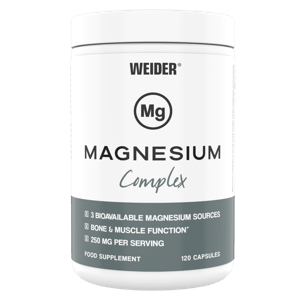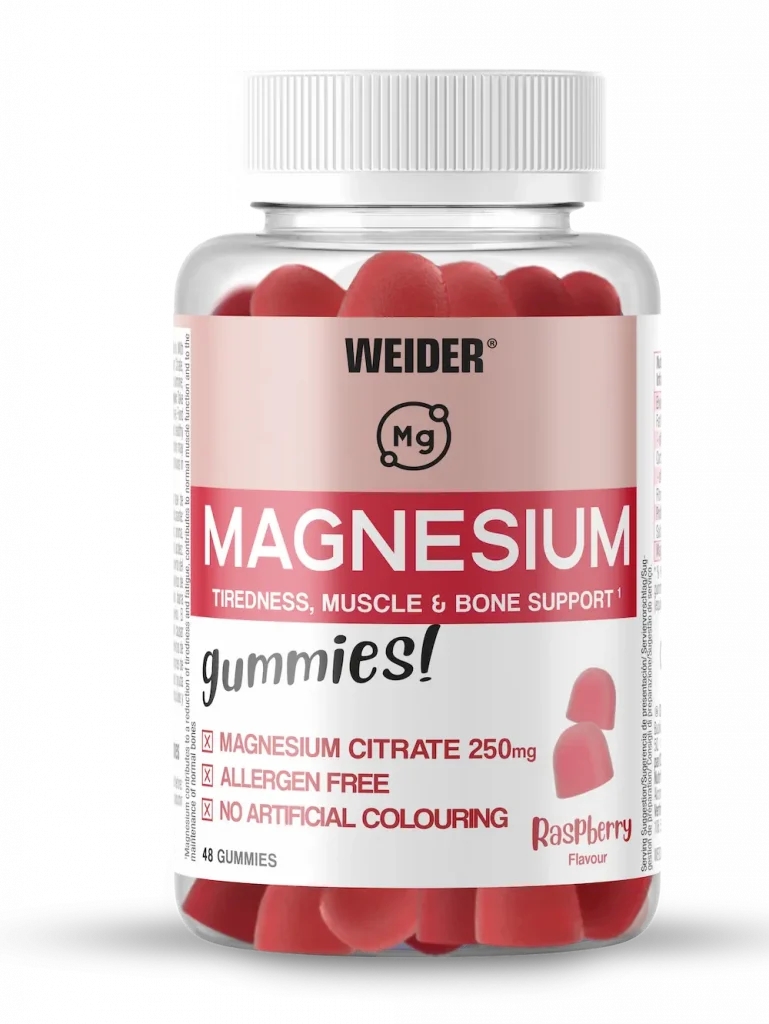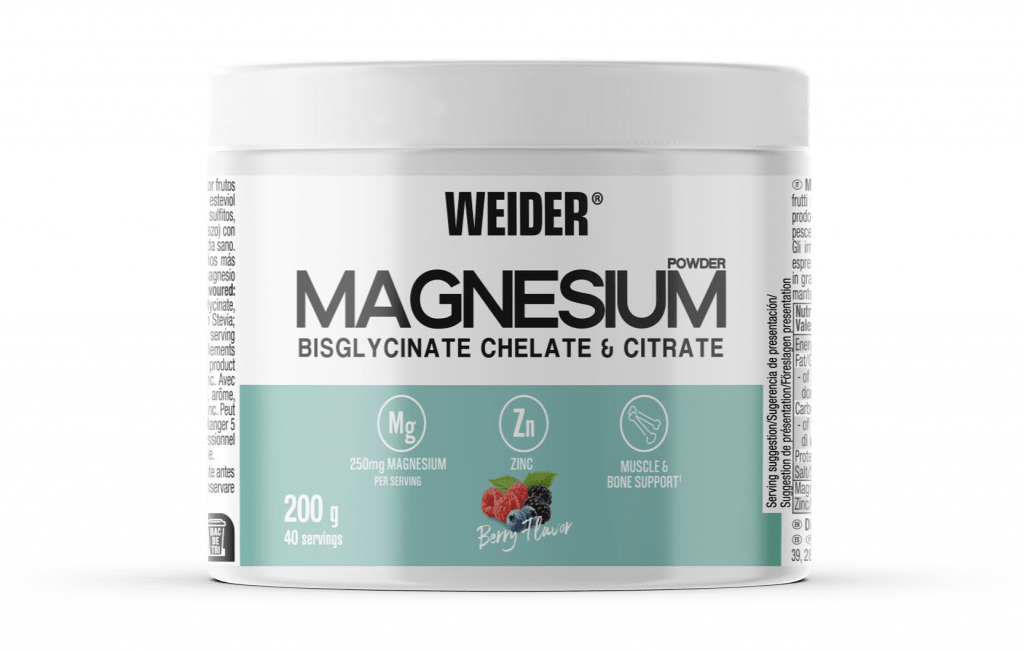When you feel tired or fatigued, have a headache, find it hard to sleep, suffer from muscle cramps or even have digestive problems, did you know that any of these symptoms could be related to a magnesium deficiency?
Magnesium is an essential mineral involved in more than 300 biological processes in our body and in the maintenance of bones and muscles. Nowadays, it is considered one of the most important minerals for our overall health, but why is it so important, do we know what type of magnesium to take and when to take it?
Let's start with the basics, ¿by what is so important is the magnesium?
Magnesium is a vital micronutrient in biochemical reactions related to functions such as energy production, muscle contraction, bone health, central nervous system function, cardiovascular health and glucose metabolism.
What are the most important benefits of magnesium?
1. Reduces tiredness and fatigue thanks to its important contribution to cellular energy production.
2. Helps reduce stress and anxiety levels through inhibition mechanisms that act on our central nervous system.
3. Contributes to muscle relaxation and prevents the onset of muscle cramps.
4. Improving the quality of sleepensuring more effective recovery and greater energy throughout the day.
5. Reducing inflammationThis has been observed in the reduction of certain inflammatory markers in the body.
¿Which are the best sources based on bioavailability?
1. Citrate magnesio: is highly bioavailable and therefore easily absorbed by the body. It contributes to proper muscle and nerve function. In case of digestive problems related to intestinal transit, this source would help to improve digestive health.
2. Bisglycinate from magnesio: is one of the most bioavailable and best tolerated forms. It helps to relax the nervous system and muscles, reduce stress and improve the quality of sleep.
3. Mmagnesium alate: is a source directly related to energy production. It is therefore often recommended in cases of tiredness or chronic fatigue or for recovery in athletes.
Why is magnesium supplementation recommended?
The type of food consumed today, given the pace of modern society, often does not ensure that the daily requirement of magnesium intake is met. For this reason, it is not only advisable to follow a healthy, varied and nutritious diet, but also to include key supplements that support the proper functioning of our bodies.
How can magnesium be consumed?
1. Gummy format: Magnesium gummies Weider raspberry-flavoured, they are an easy and delicious way to take magnesium citrate. Plus, they are gluten-free and contain no artificial colours.
2. Powder format: Magnesium Powder from Weider is an ideal solution if you want to take magnesium mixed with water, with a pleasant red berry flavour. This format also allows it to be added to yoghurt or any fruity drink. It combines the sources of magnesium bisglycinate and magnesium citrate.
3. Capsule format: if your goal is to consume three different sources of magnesium at the same time, here's the solution. Magnesium Complex by Weider combines the three recommended sources of magnesium (Citrate, Bisglycinate and Malate).



When would be the optimal time to take magnesium?
Before going to bed is an optimal time to help you get to sleep and recover during the night. In addition, if you opt for Weider jelly beans, a healthy and nutritious sweet treat at the end of the day is very pleasant.
In the event of any type of training or endurance sport that may lead to muscle cramps, it would be advisable to consume 3 Weider magnesium gummies at the end of exercise to contribute to muscle relaxation and more effective recovery.
What is the recommended dose?
Depending on age, sex and general health, more specifically on the mineral balance in our body. Between 300 - 400g of magnesium per day would be a recommended dose. If we ensure a daily minimum of 250g through supplements, the rest can be obtained directly from foods rich in this mineral (avocado, spinach, almonds, pulses, bananas, oily fish, pumpkin seeds, chia...).
Conclusion
Magnesium is an essential mineral for our health. Being aware of the symptoms related to magnesium deficiency will help us to know if we may need to boost our daily magnesium intake. If you find it difficult to get enough magnesium from food, supplements are the most effective solution. Finally, choosing the most convenient format (gummies, powder or capsules) ensures that you are consistent in your daily intake in order to achieve overall health and wellbeing.

Written by Paula Ellis